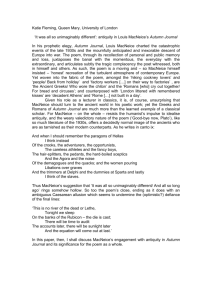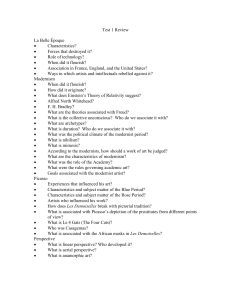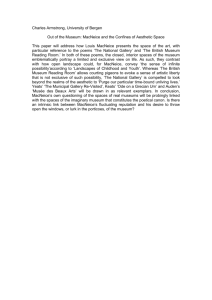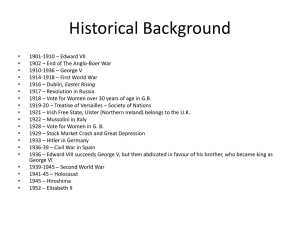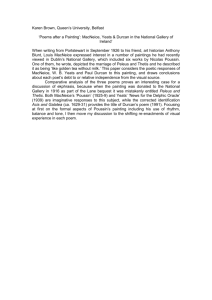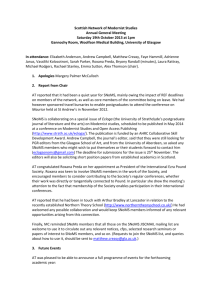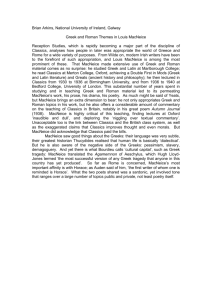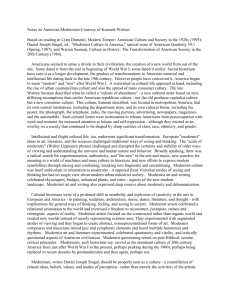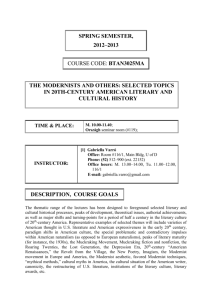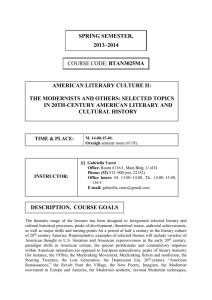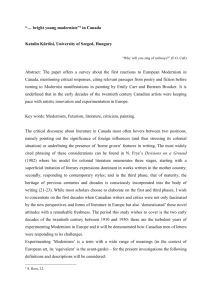Neil Jones, Oxford University
advertisement
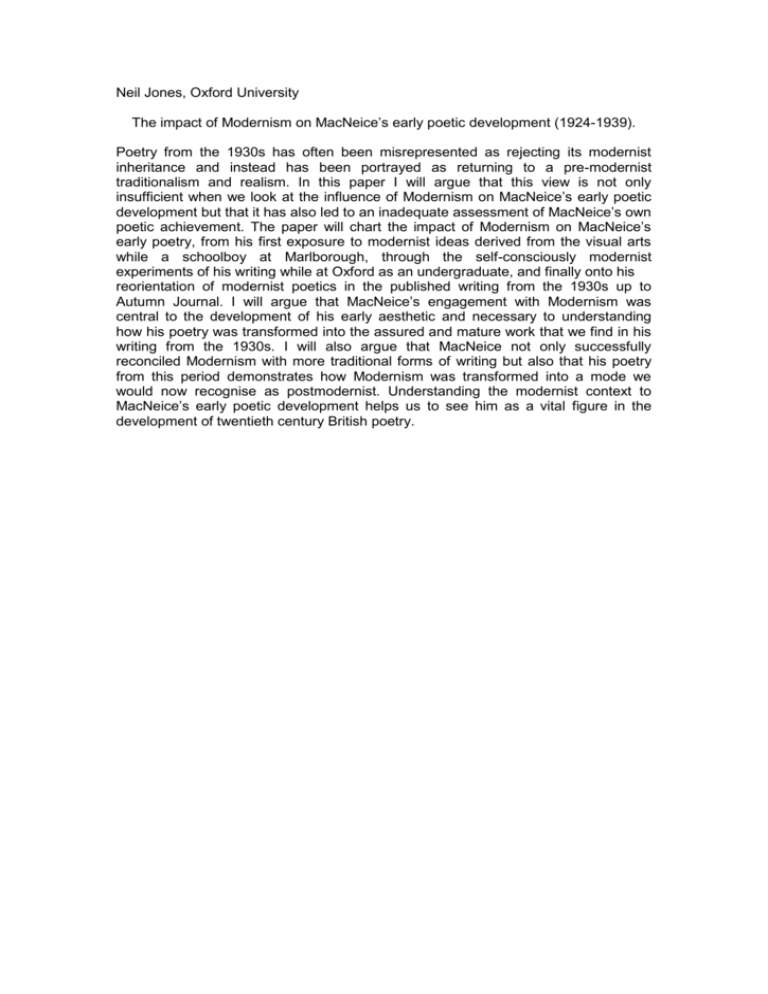
Neil Jones, Oxford University The impact of Modernism on MacNeice’s early poetic development (1924-1939). Poetry from the 1930s has often been misrepresented as rejecting its modernist inheritance and instead has been portrayed as returning to a pre-modernist traditionalism and realism. In this paper I will argue that this view is not only insufficient when we look at the influence of Modernism on MacNeice’s early poetic development but that it has also led to an inadequate assessment of MacNeice’s own poetic achievement. The paper will chart the impact of Modernism on MacNeice’s early poetry, from his first exposure to modernist ideas derived from the visual arts while a schoolboy at Marlborough, through the self-consciously modernist experiments of his writing while at Oxford as an undergraduate, and finally onto his reorientation of modernist poetics in the published writing from the 1930s up to Autumn Journal. I will argue that MacNeice’s engagement with Modernism was central to the development of his early aesthetic and necessary to understanding how his poetry was transformed into the assured and mature work that we find in his writing from the 1930s. I will also argue that MacNeice not only successfully reconciled Modernism with more traditional forms of writing but also that his poetry from this period demonstrates how Modernism was transformed into a mode we would now recognise as postmodernist. Understanding the modernist context to MacNeice’s early poetic development helps us to see him as a vital figure in the development of twentieth century British poetry.
